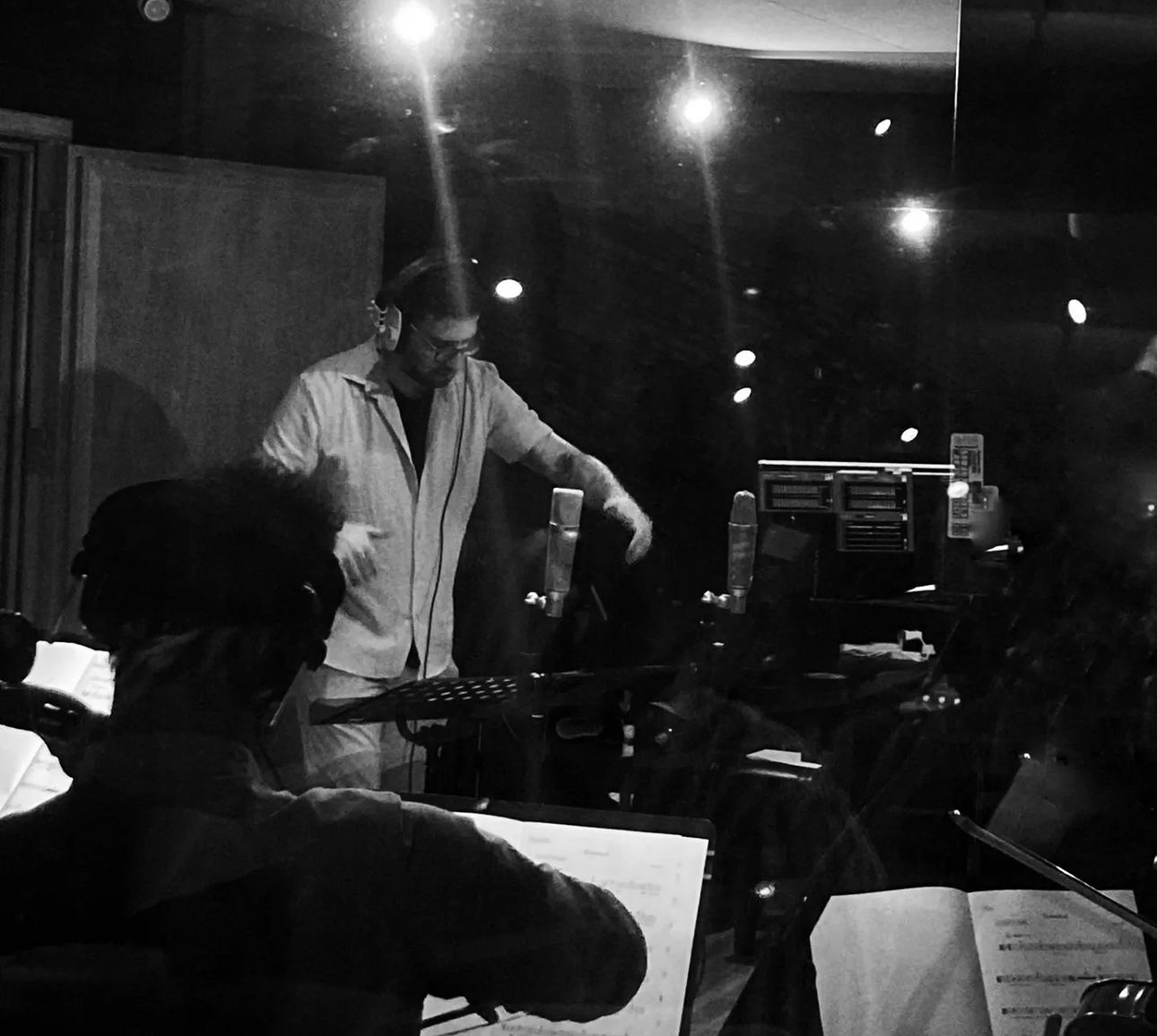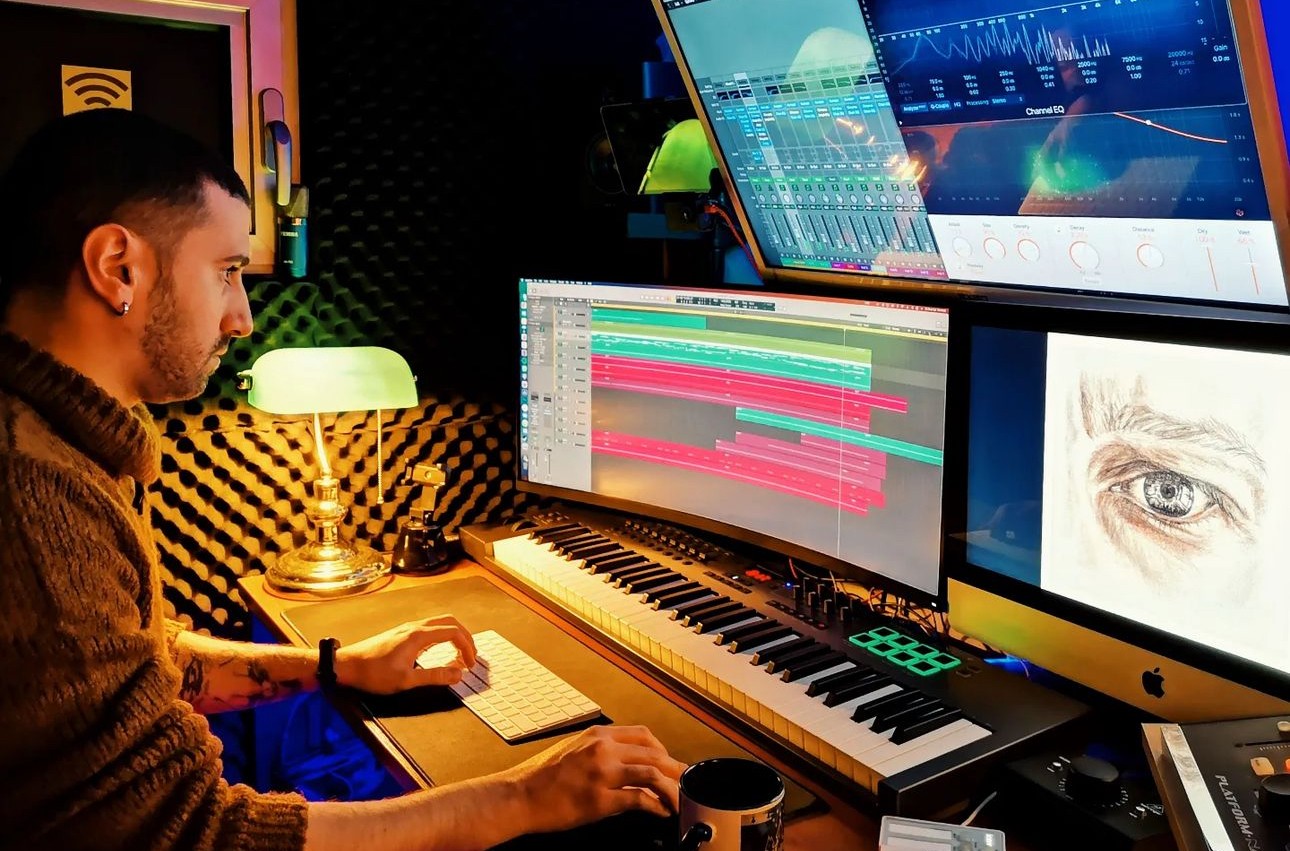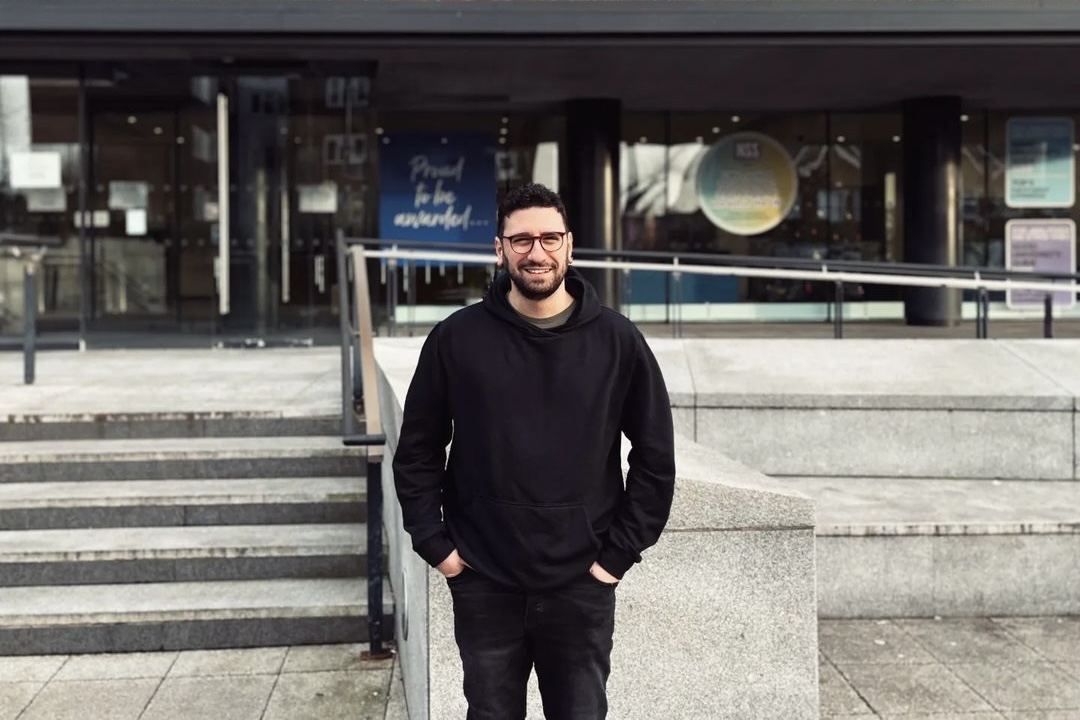We were lucky to catch up with Arın Aykut recently and have shared our conversation below.
Arın, appreciate you joining us today. Are you able to earn a full-time living from your creative work? If so, can you walk us through your journey and how you made it happen?
In today’s world, where it’s becoming increasingly difficult to make a living solely from your primary profession, doing so in the field of music is undoubtedly challenging and dependent on numerous factors, often requiring a long journey. At my current stage, I feel incredibly fortunate to be working full-time in my profession, earning my living as a versatile film composer, pianist, and conductor. Of course, this hasn’t happened overnight; it’s a goal reached through time, patience, planning, and strategy, as well as overcoming various challenges. However, it’s not impossible.
To those just starting their careers, and to everyone who isn’t engaged in music or the arts, I strongly advise them never to shy away from taking on different jobs or developing themselves in other areas, all while patiently staying focused on their ultimate goals. I also believe that rather than fixating on the highest dreams, it’s essential to focus on the individual steps that lead to them, one by one. This is what keeps us mentally strong and helps us stay on our feet during this difficult journey.
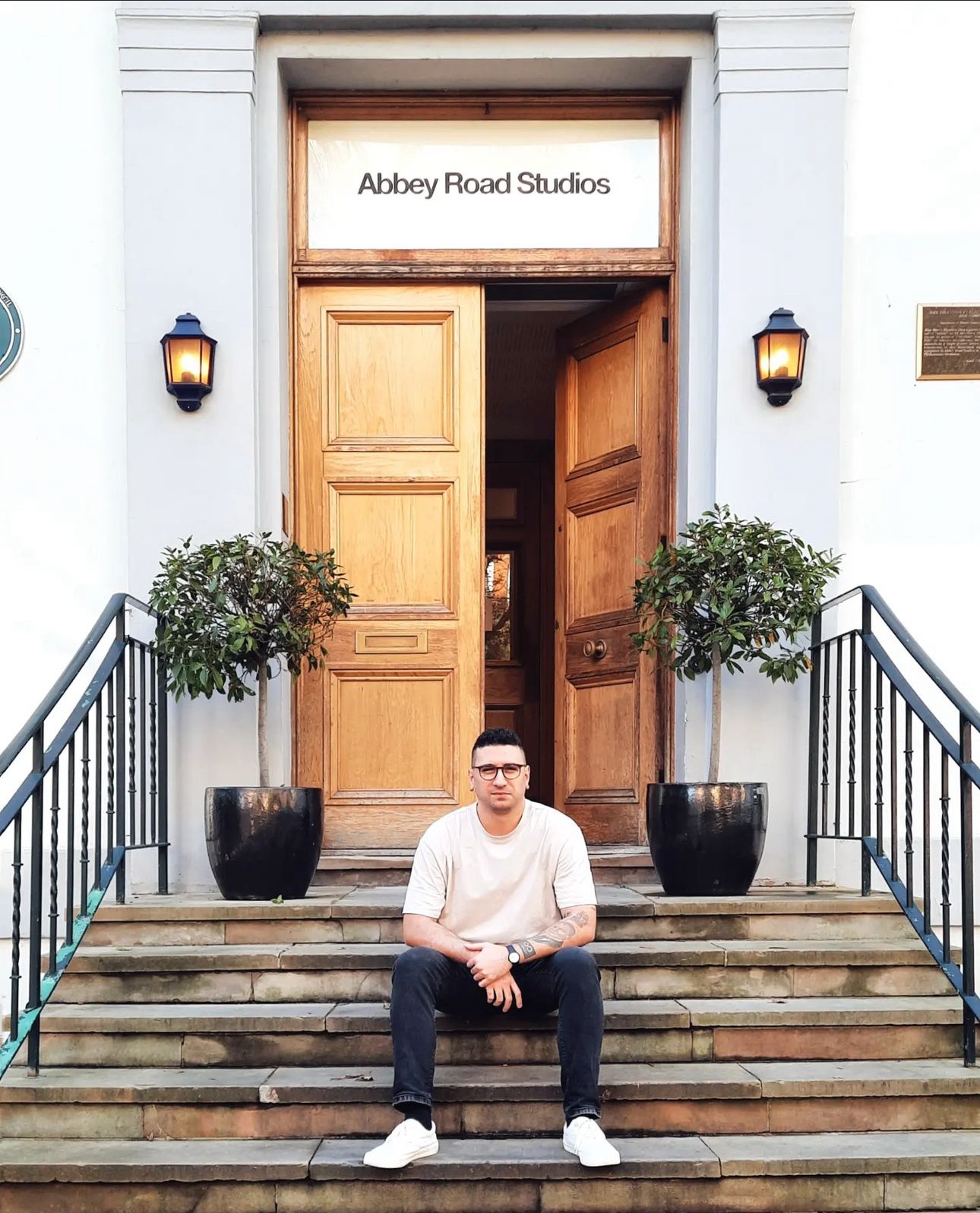
Arın, before we move on to more of these sorts of questions, can you take some time to bring our readers up to speed on you and what you do?
I’m Arın Aykut, a score composer, pianist, and orchestral conductor based in London. My journey with music began at a young age, starting with piano, and eventually led me into a world of composing for films, video games, television, and theater productions. I’ve had the opportunity to work on a variety of projects, from indie films to larger productions, which has allowed me to explore diverse musical languages.
I completed my bachelor’s degree in piano performance at the Ankara State Conservatory and my master’s degree in orchestral conducting at Chopin University of Music. From there, my passion for storytelling through music grew, and I went on to earn a second master’s in Composition for Film & TV from the University of West London. Currently, I’m pursuing a PhD in Film Music Composition at the London College of Music, where I’m fortunate to be supported by a Vice-Chancellor’s full scholarship.
My career has taken me to stages like Würzburg Palace in Germany, where I performed as a solo pianist as part of the Art Without Limits EU project, and I was also a finalist at The World Pianist Invitational competition in the USA. As a conductor, I’ve had the privilege of working with orchestras such as the National Polish Radio Symphonic Orchestra and the Turkish State Polyphonic Choir.
Recently, I composed the score for Life After Man, a feature film produced by Title Film in Australia, which will be released at the end of 2024. I’ve also worked on several short films, like Log Diaries: Seekers of Water, Tenement, Fragrant, and Log Diaries 2: Desertion, as well as the mobile game Trash Run and the National Theatre of Turkey’s production of House of Bernarda Alba.
Additionally, I work as a freelance composer for Hans Zimmer’s scoring collective, Bleeding Fingers Music, and Extreme Music, which has been an incredible opportunity to collaborate with some of the most talented musicians in the industry.
Music has always been my way of connecting with the world, and every project I take on feels like a new adventure in storytelling.
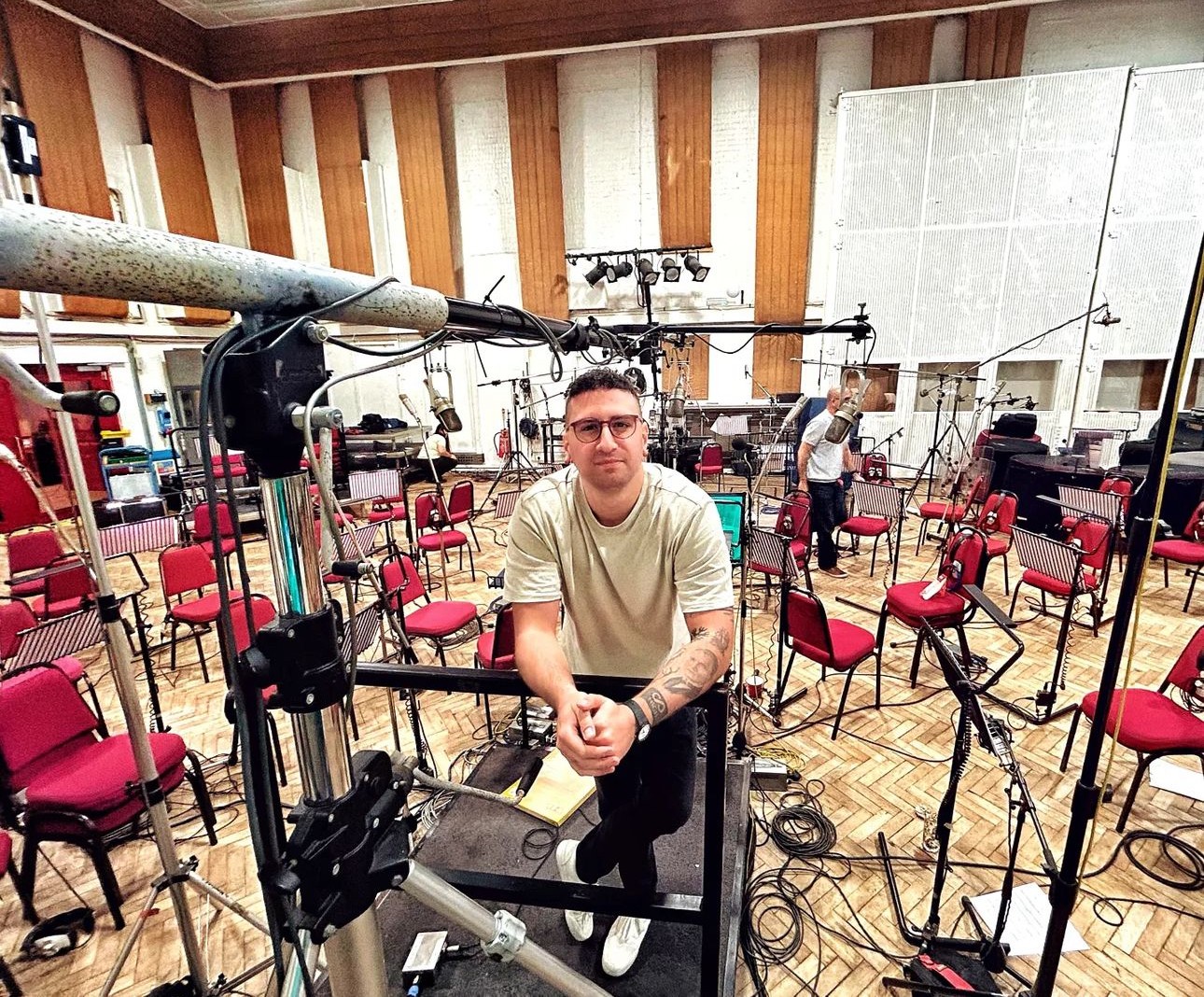
What do you find most rewarding about being a creative?
For me, the most rewarding aspect of being an artist is the ability to create emotional connections through music. There’s something incredibly powerful about crafting a score that enhances a story and resonates with people on a personal level. Music has this universal language that can evoke feelings and memories, and being able to contribute to that as a composer feels like a privilege.
Every project I work on is a new opportunity to explore different emotions and narratives, and knowing that my work can leave a lasting impression on someone, even if they don’t know my name, is deeply fulfilling. It’s about capturing those fleeting, intangible moments and translating them into sound – that’s what drives me.
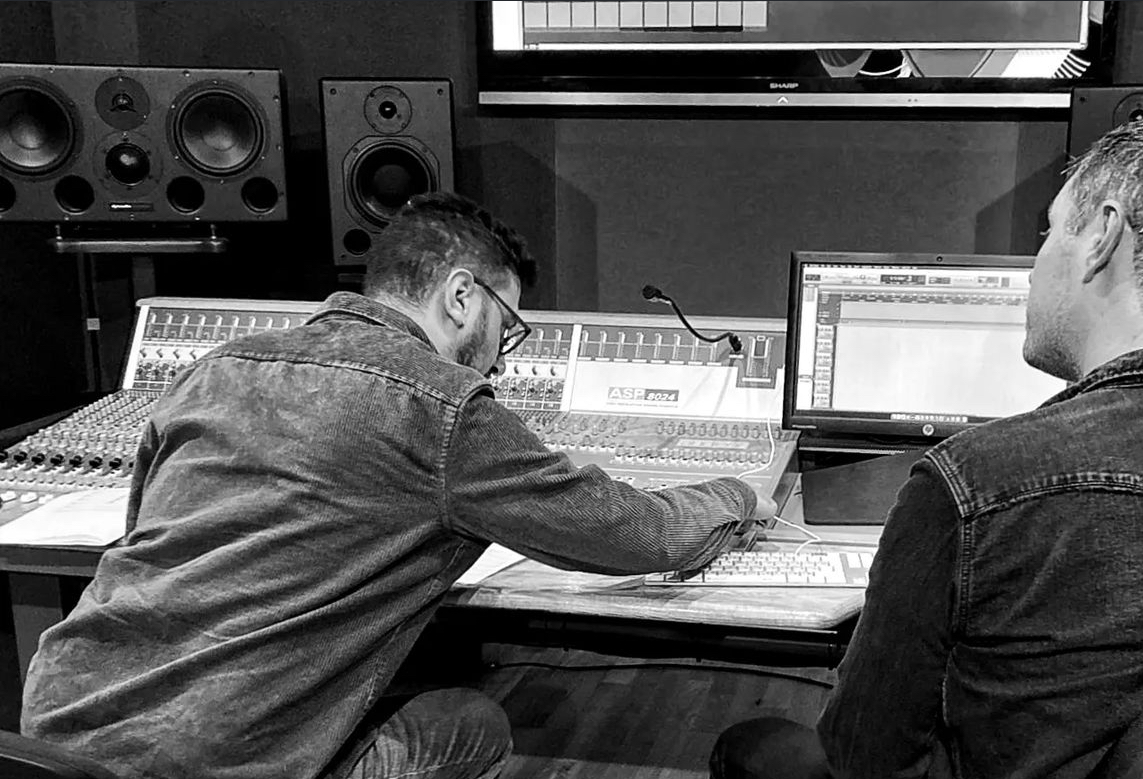
How can we best help foster a strong, supportive environment for artists and creatives?
In my view, one of the most important things society can do to support artists and a thriving creative ecosystem is to recognize the value of art beyond entertainment. Art shapes culture, challenges perspectives, and often reflects the complexities of the human experience. Providing more accessible funding, education, and platforms for artists is crucial. Many emerging creatives struggle to find the resources or opportunities to fully develop their craft, so creating more initiatives—both public and private—that support artistic endeavors is essential.
Additionally, fostering an environment that encourages creative risk-taking is key. Often, artists are pressured to fit into commercial molds to survive, but the most impactful art often comes from pushing boundaries and embracing new ideas. A society that respects and celebrates artistic diversity, and encourages experimentation, will ultimately help nurture more innovative and meaningful work.
On a personal level, I’ve been fortunate to receive scholarships and opportunities that allowed me to grow as a composer and conductor, and I believe every artist deserves access to those kinds of resources. Investing in the arts isn’t just about supporting individuals; it’s about investing in a culture that values creativity as a fundamental part of life.
Contact Info:
- Website: https://www.arinaykut.com/
- Instagram: https://www.instagram.com/arinaykut
- Linkedin: https://www.linkedin.com/in/arinaykut?utm_source=share&utm_campaign=share_via&utm_content=profile&utm_medium=ios_app
